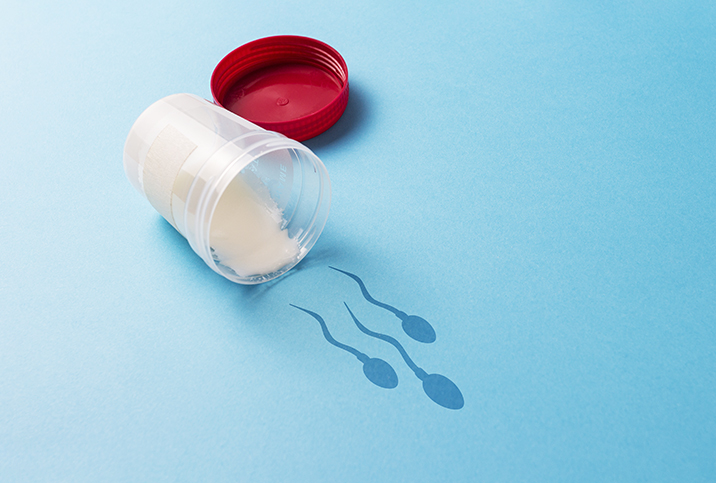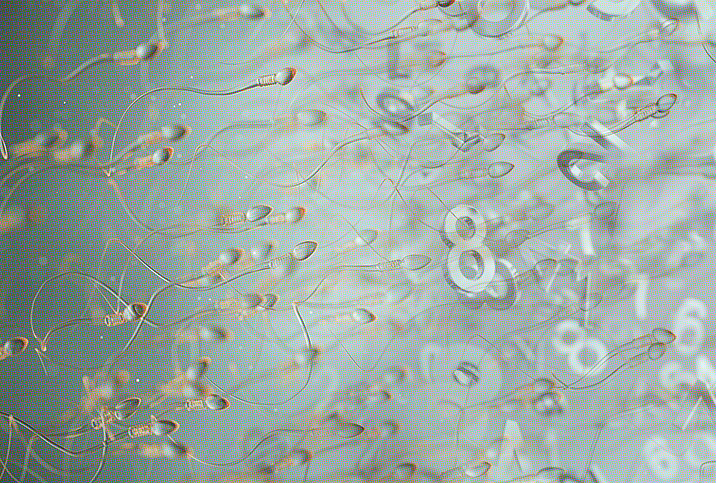Home Sperm Test Kits: How Reliable Are They?

Fertility is a touchy subject, and although it intersects with all kinds of societal, emotional and personal issues, thankfully, it is finally becoming more openly discussed, including by men.
These days, you can get home test kits for just about anything, including sperm health. But how reliable are they?
Let's take a look at the efficacy of home sperm test kits, discuss what's involved in determining whether a man's sperm is viable, and see how it all fits into the bigger picture of overall fertility.
Fertility issues: It's not you, it's me
According to the National Institutes of Health (NIH), 20 to 37 percent of healthy couples under the age of 30 can conceive within three months of trying. However, 15 percent of couples trying to have a baby are unsuccessful after a year, and 10 percent after two years. When couples face these kinds of roadblocks on the path to starting a family, of course, it raises all kinds of questions.
The first answer to acknowledge is that fertility complications are split pretty evenly along gender lines. According to studies, when a couple has difficulty conceiving, the problem lies with the man in one-third of the cases, the woman one-third of the time, and either a combination of the two or unknown reasons in the other third of cases.
Of course, it's not a blame game. Often, couples look to the man's reproductive health first when facing fertility issues simply because the man's genetic material is more accessible.
What causes male infertility?
If a man has difficulty conceiving a child, it can be due to several wildly diverse factors, including:
- Erectile dysfunction
- Varicoceles
- Physical trauma
- Infection
- Radiation therapy
- Sperm antibodies
However, the main culprit of most reproductive issues in men is sperm.
A home sperm test requires a man to ejaculate into a collection receptacle and then test it for a protein found only in sperm. While the procedures and the sperm criteria tested vary with each brand, many commercially available kits come with a mini-microscope to allow you to look at your little swimmers up close.
The main goal of home sperm tests is to determine sperm count. If you have more than 20 million sperm per milliliter, your sperm concentration is within the normal range. One home test kit was found to return the same sperm count results as a laboratory test 95 percent of the time. (Full disclosure: This study was conducted by the kit's manufacturer.)
Not just quantity, but quality counts, too
One issue with home sperm tests is that while sperm concentration (sperm count) is indeed an important factor in male fertility, a number of other components are vital as well:
- Semen volume
- Total sperm number
- Vitality (percent alive)
- Motility (ability to move)
- Morphology (shape)
And while a number of home sperm tests claim to test for one or more of these criteria as well as sperm count, only a trained fertility expert in a laboratory setting can and will reliably test for all of them, according to the Mayo Clinic.
While there's certainly no harm in dropping about $100 or so on a home test kit to check your sperm count, it should be treated perhaps more as a matter of curiosity rather than a final conclusion. There are too many possible factors involved in fertility to assign tremendous weight to a test kit that asks people to conduct lab experiments in home bathrooms.
To get a preliminary snapshot of what might be a fertility issue, yes, use a home test kit. But if you're ready to get serious about possible fertility issues, make an appointment with a fertility specialist.


















